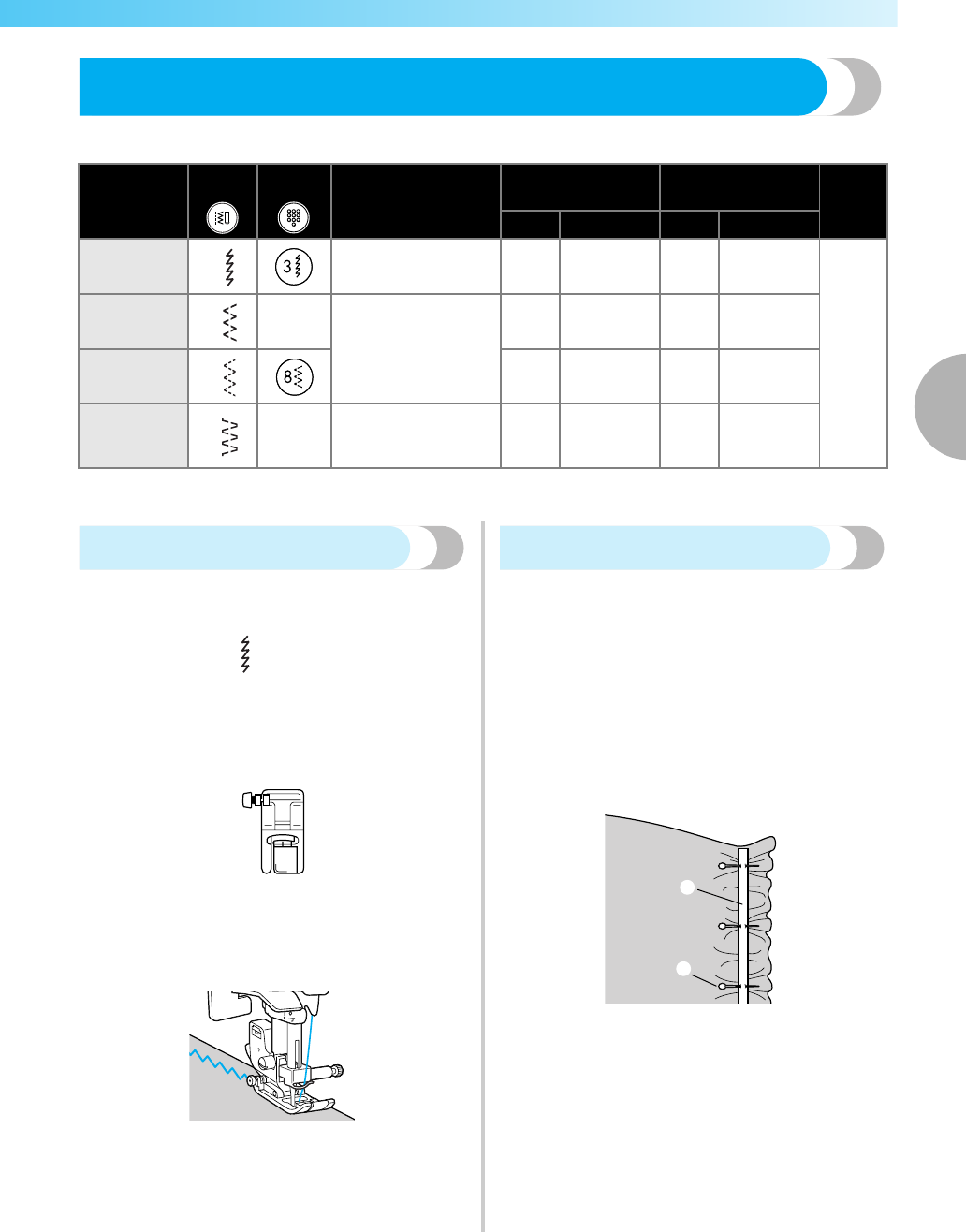
Sewing Stretch Fabrics and Elastic Tape 91
— — — — — — — — — — — — — — — — — — — — — — — — — — — — — — — — — — — — — — — — — — — — — — — — — — — —
3
Sewing Stretch Fabrics and Elastic Tape
Stretch fabrics can be sewn and elastic tape can be attached.
Observe the corresponding precautions when performing each of the following stitching operations.
Stretch stitching
a
Turn on the sewing machine.
b
Select stitch
04
.
• For details, refer to “Selecting stitching” (page
67).
c
Attach zigzag foot “J”.
• For details, refer to “Replacing the presser
foot” (page 41).
d
Sew the fabric without stretching it.
Elastic attaching
When elastic tape is attached to the cuff or waist of a
piece of clothing, the finished dimensions will be that
of the stretched elastic tape. therefore, it is necessary
that a suitable length of the elastic tape be used.
a
Pin the elastic tape to the wrong side of the
fabric.
Pin the elastic tape to the fabric at a few points
to make sure that the tape is uniformly
positioned on the fabric.
a Elastic tape
b Pin
b
Turn on the sewing machine.
c
Select a stitch.
• For details, refer to “Selecting stitching” (page
67).
Stitch Name
Pattern
Numeric
Key
Application
Stitch Width
[mm (inch)]
Stitch Length
[mm (inch)]
Presser
Foot
Auto Manual Auto Manual
Stretch stitch
04
Stretch fabrics
1.0
(1/16)
1.0–3.0
(1/16–1/8)
2.5
(3/32)
1.0–4.0
(1/16–3/16)
J
2-point
zigzag stitch
06
–
Attaching elastic
5.0
(3/16)
1.5–7.0
(1/16–1/4)
1.0
(1/16)
0.2–4.0
(1/64–3/16)
3-point
zigzag stitch
07
5.0
(3/16)
1.5–7.0
(1/16–1/4)
1.0
(1/16)
0.2–4.0
(1/64–3/16)
Elastic-
attaching
stitch
31
–
Attaching elastic to
stretch fabrics
4.0
(3/16)
0.0–7.0
(0–1/4)
1.0
(1/16)
0.2–4.0
(1/64–3/16)
J
1
2


















